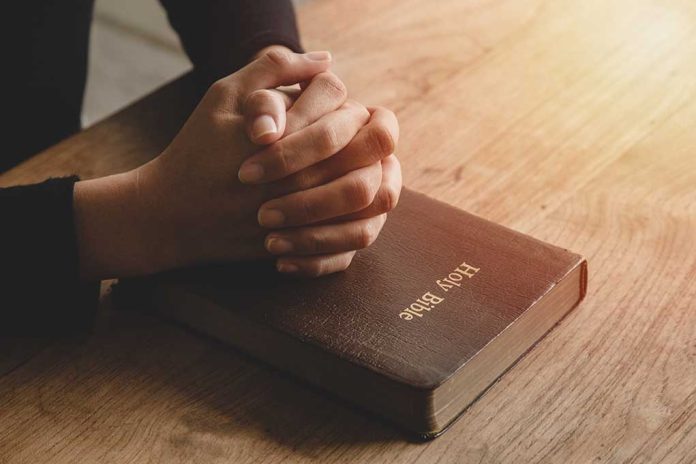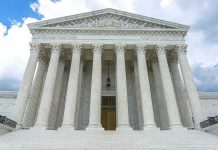
Syrian Christians face hardships as they celebrate Christmas while political unrest and religious tensions loom, raising questions about their future.
At a Glance
- Syrian Christians celebrate Christmas amid political changes and religious tensions.
- The Lady of Damascus Church is a symbol of resilience for Syrian Christians.
- Protests erupted after a Christmas tree was burned, showing demands for protection.
- HTS’s promises to protect minorities are met with skepticism among Christians.
Christmas Under Tension
Syrian Christians marked their first Christmas Eve services since President Bashar al-Assad’s ouster, under heightened security. The Lady of Damascus Church overflowed with worshippers, representing a community’s resilience. This renewed festive season follows the long years of brutal conflict and suppression, a moment both celebratory and charged with fear.
Recent events have underscored the volatile landscape for Christians. The burning of a Christmas tree by Islamist groups sparked protests in Damascus and Al-Suqalabiyah, where demonstrators demanded rights and condemned attacks on churches. A unity formed, particularly with support from the Druze, highlighting the social alliances forming amid these challenges. “We are protesting to demand our rights and denounce… the burning of the Christmas tree, and attacks on churches. We do not accept this,” said Laila Farkouh.
Post-Assad Syrian Christians Rise Up to Celebrate Christmas
https://t.co/KUO0KG284J— Townhall.com (@townhallcom) December 25, 2024
Uncertain Protection under New Governance
The governance of Hay’at Tahrir al-Sham (HTS) has now overtaken control, pledging to protect minority rights. Yet, Christians remain skeptical, wary of the history of the new leaders. Incidents of gunfire and attacks on Christian sites have heightened concerns about the sincerity of these promises. Despite HTS’s actions to detain the perpetrators of the tree burning and their pledge to replace it, tension is high.
International players, including the U.S. State Department, are closely monitoring the situation to see if HTS can uphold its commitments under the new leadership of Abu Mohammed al-Jawlani. Syrian Christians find themselves at a crossroads, unsure of what the future holds. This period of newly found freedom of expression raises hopes but is marred by the history and suspicion of HTS’s intentions.
Syrian Christians attend Christmas mass for first time since fall of Assad https://t.co/tVjCmpaFez pic.twitter.com/WxX8MYwlR6
— Reuters (@Reuters) December 24, 2024
Identity and Future in Question
The identity of Syrian Christians is being challenged in this transitional period. For many, the question of place and safety in post-Assad Syria is troubling. Under HTS’s endeavors to reshape its image from a radical group to a governance body, the protests continue to demand genuine freedom and respect for diversity. Concerns remain prevalent about the potential regression of religious rights.
As Christmas becomes a public holiday and the new government makes commitments, the Christians’ future is uncertain but hopeful. The worldwide Christian community watches vigilantly, advocating for Syria’s minorities and praying for peace and stability in the Middle East. The narrative of resilience shines through this year’s Christmas celebrations.
Sources:
- Syrian Christians Celebrate Christmas Amidst Unrest Post-Assad
- Post-Assad Syrian Christians Rise Up to Celebrate Christmas







